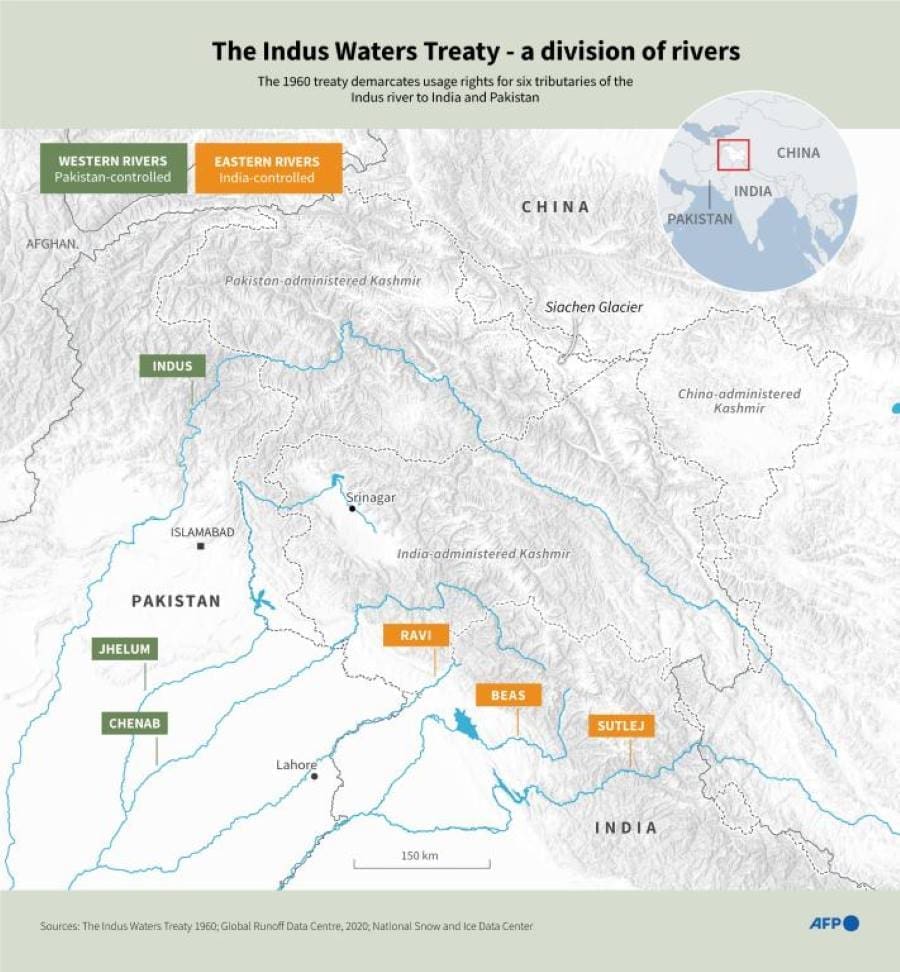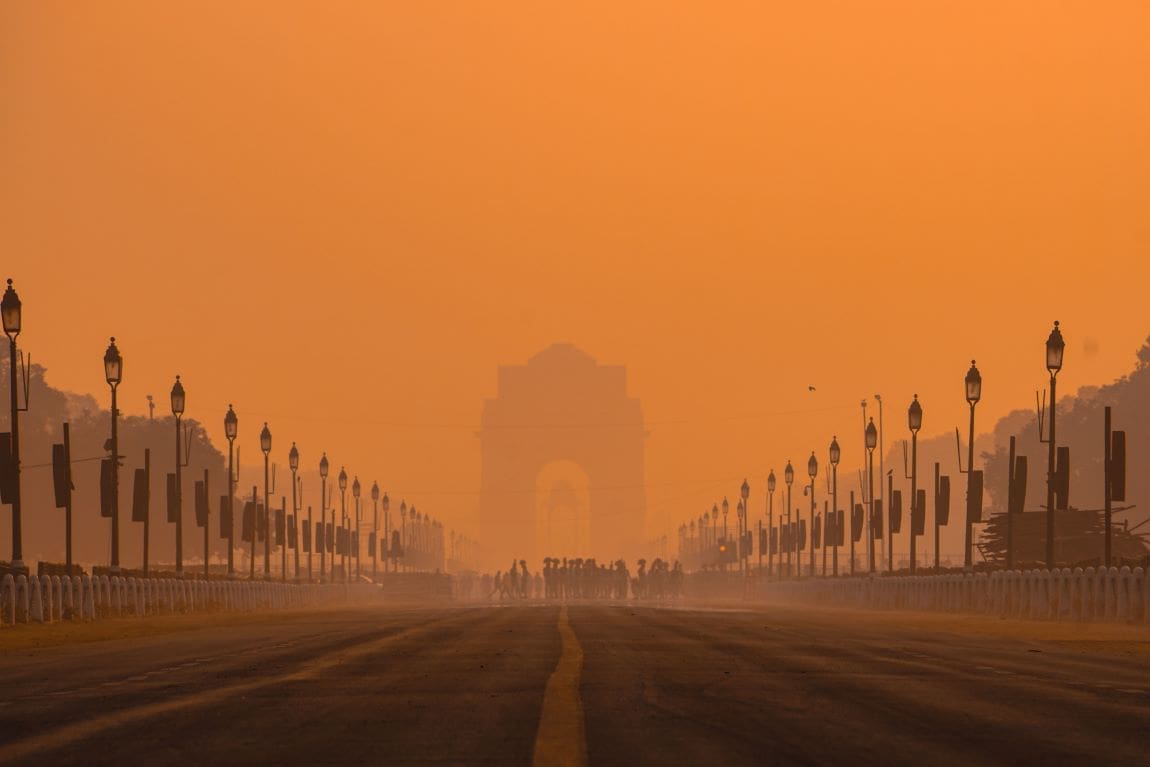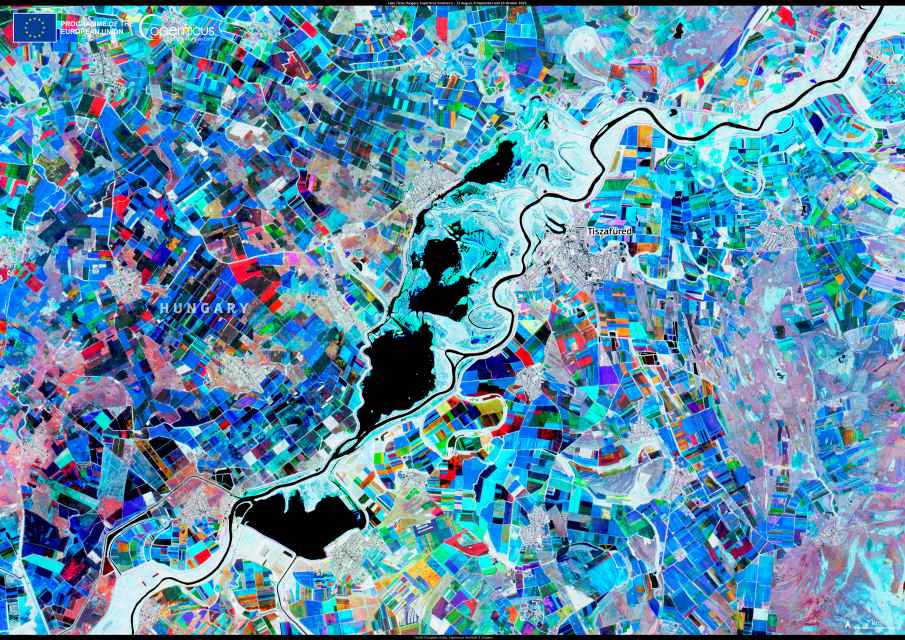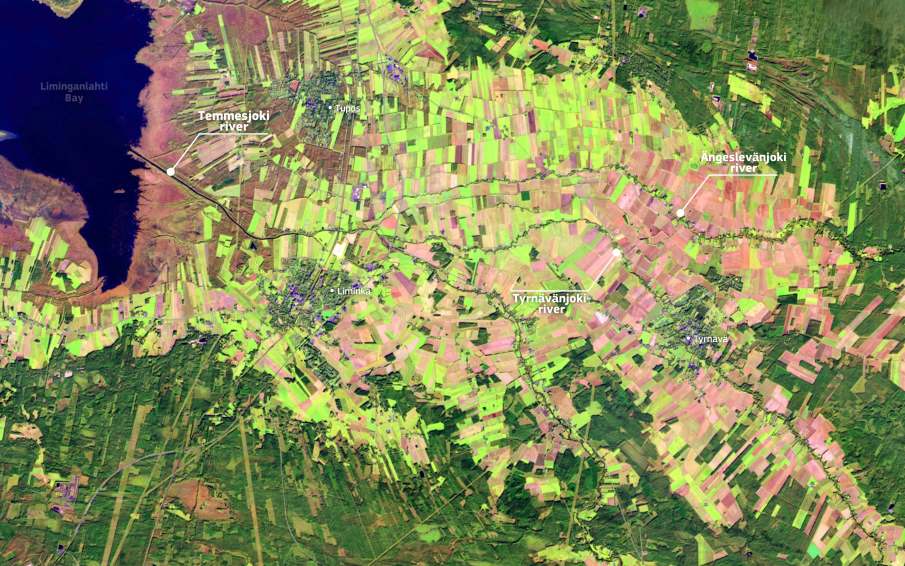Srinagar, India | AFP
India, furious after a deadly attack, has suspended the Indus Waters Treaty with Pakistan, with Islamabad warning any attempt to stop water flows would be considered an “act of war”.
The 65-year-old pact was considered a rare diplomatic success story between bitter nuclear-armed rivals who have fought multiple conflicts.
But one thing experts on both sides of the border agree on is that while important, its suspension will have limited immediate impact on water.
What happened?
The Indus River is one of the longest in Asia, cutting through ultra-sensitive demarcation lines between India and Pakistan in contested Muslim-majority Kashmir — a Himalayan territory both countries claim in full.
New Delhi suspended its part in the treaty after gunmen in Indian-run Kashmir targeting tourists killed 26 men on April 22.
India accused Pakistan of supporting “cross border terrorism”, claims rejected by Islamabad.
Pakistan, which argues India is flouting international law, said it would respond with “full force” to any attempt to stop the water.

What is the treaty?
The 1960 treaty, negotiated by the World Bank over several years, ensured “equitable use” of six tributaries that feed the Indus river system.
The issue of water is deeply sensitive for both nations.
For parched Pakistan, the water is critical for consumption and agriculture.
Under the deal, it was agreed that India controls three eastern Indus tributaries outright — the Ravi, the Sutlej and the Beas.
India has the unlimited right to use them for irrigation and power generation.
While most is used, water still flows to Pakistan, especially during the rainy season when dams are full.
Three western rivers — the Chenab, Jhelum and Indus — are allocated to Pakistan.
India however can exploit them for non-consumptive uses, such as hydroelectric power.
Indian dams under construction on the Chenab are expected to increase its use.
What impact does suspension have?
“In the short term, there may not be any direct practical implication,” said Himanshu Thakkar, coordinator of the India-based South Asia Network on Dams, Rivers and People.
“Any safe infrastructure to divert water, beyond what is happening now, takes years, mostly more than a decade.”
India’s existing dams do not have the capacity to block or divert water.
“India cannot immediately stop the flow of these rivers, as it is technically unfeasible and economically not viable,” Pakistan water expert Hassan Abbas said.
The treaty’s most important role was a dispute resolution mechanism, but Thakkar argued that it was already “more or less in limbo” for several years.
Why, then, did India suspend it?
Praveen Donthi from the International Crisis Group, said India’s action was more sabre-rattling rhetoric for New Delhi to show action in a manner that “the masses will understand”.
“The public was asking for retaliation, but that military retaliation takes time,” Donthi said.
“It may take a week, two weeks, but there was a need for an immediate reaction.”
The Indian public will view it as “a collective punishment that’s being imposed on Pakistan for the act”, Donthi said.
Hindu-nationalist Prime Minister Narendra Modi had already threatened to use water as a weapon in 2016 after an attack in Indian-run Kashmir.
“Blood and water cannot flow together,” he said at the time.
Is there a longer-term impact?
India’s suspension letter sent to Pakistan also said there were “fundamental changes to the circumstances” since the deal was signed, including “population dynamics” as well as a “need to accelerate the development of clean energy”.
The precious resource is being sucked up by increasing populations and surging agricultural requirements, as well as hydropower projects fuelled by rising energy needs.
Building further dams that could hinder the flow more significantly is a tough task in rugged mountain terrain, but not impossible.
The growing impacts of climate change, shifting weather systems and melting glaciers in the wider Himalaya region means water is becoming more valuable than ever.
Are there other consequences?
Pakistan’s The Dawn newspaper also pointed out it was “not a cost-free move” for India.
It noted that China controls the headwaters of the Brahmaputra, the vast river key to India’s northeast.
“By suspending the treaty and acting unilaterally, it sets a precedent that could one day be used against it”, it read.
burs-pjm/mtp
© Agence France-Presse
Article Source:
Press Release/Material by Parvaiz BUKHARI and Zain Zaman JANJUA (Islamabad) | AFP
Featured image credit: wirestock | Freepik




